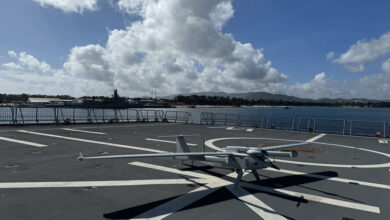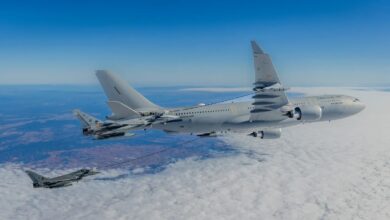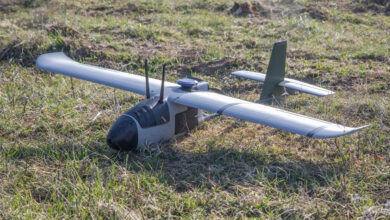Airbus and the Organisation for Joint Armament Co-operation (OCCAR) have signed the Eurodrone project, which involves the development of 20 next-generation unmanned aerial systems.
The signing comes less than a month after the Spanish government green-lit the multinational project, which also includes France, Germany, and Italy.
Among the signing parties, Airbus Defence and Space represented the three major sub-contractors: Airbus Defence and Space in Spain, Dassault Aviation in France, and Leonardo in Italy, while the OCCAR represented the four European countries.
Airbus and OCCAR sign #Eurodrone contract for the development and
manufacturing of 20 systems and initial in-service support.
Learn more:https://t.co/yt9YHgHCEZ@Dassault_OnAir @LDO_Aircraft @AirbusDefence#DefenceMatters pic.twitter.com/yNrxfhDkQj— Airbus Defence (@AirbusDefence) February 24, 2022
Showcases European Expertise
CEO of Airbus Defence and Space Mike Schoellhorn stated that the “signature kicks-off the development of one of the most ambitious European defense programs.”
General Manager of Leonardo Lucio Valerio Cioffi remarked: “Eurodrone will provide high performance and sovereign operational systems to the armed forces and represents a key constituent of the European Defence Industry as well as a unique opportunity to showcase our high technological expertise and capabilities stemming from decades of European collaboration on military programs.”
The signing of the #Eurodrone contract with OCCAR
represents the kick-off for a crucial new defence programme.
We are grateful to start with our partners & strengthen collaboration between our nations & industries & amplify our industrial, sovereign technology base.


pic.twitter.com/BDqMgY3zFh
— Michael Schoellhorn (@SchoellhornMike) February 24, 2022
The Eurodrone
Eurodrone is the first unmanned aerial system “designed to fly in non-segregated airspace,” which means it doesn’t require dedicated air space and its flight can be integrated with civilian airspace.
Its modular design enables “multi-mission capabilities and significant growth potential, for homeland operations, Intelligence, Surveillance, Target Acquisition, Reconnaissance (ISTAR) and armed ISTAR, which can be conducted with full operational sovereignty.”
The contract involves five years of initial in-service support and the project is expected to generate over 7,000 high-tech jobs.













